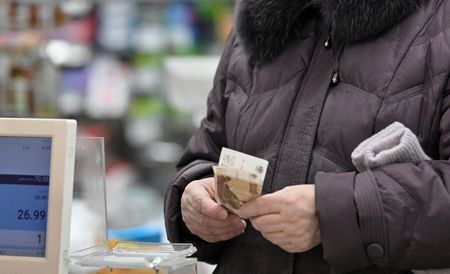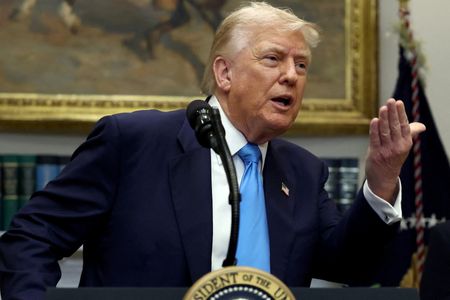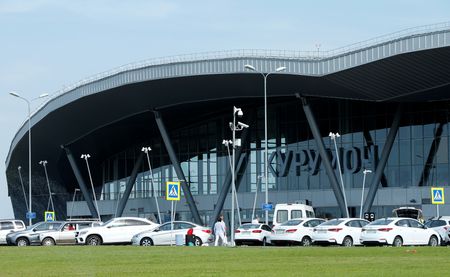By Elena Fabrichnaya and Gleb Bryanski
MOSCOW (Reuters) -The Russian rouble is expected to weaken to 100 against the U.S. dollar in the next 12 months, a 20% decline from its current level, according to a Reuters poll of 14 analysts on Friday, with potential new U.S. sanctions viewed as a major factor influencing the currency.
U.S. President Donald Trump has said he will impose new sanctions on Moscow and countries that buy its energy exports – of which the biggest are China and India – unless Russia shows progress by August 8 towards a peace settlement in Ukraine.
“The behaviour of the rouble in August will largely be influenced by the specific content of the sanctions measures that Washington plans to implement against the Kremlin,” said Finam analyst Alexander Potavin.
The rouble dropped 4.3% between July 24 and July 30 on Trump’s threats but has since regained much of that ground to trade at around 80 on Friday. Analysts expected the currency to weaken to 83 to the dollar in 30 days from now.
“If the sanctions announced by Donald Trump against Russia turn out to be severe and are implemented, the Russian economy and financial market could face a new, profound impact,” Potavin added.
Most analysts have regarded the Russian rouble as overvalued in recent months and have been saying that it needs to weaken.
The Kremlin says that Russia has acquired immunity to sanctions thanks to long experience. In the previous monthly poll, analysts saw the rouble weakening to 98.25 against the dollar in 12 months.
The inflation rate, which is subsiding thanks to the central bank’s tight monetary policy, the rouble’s strength, and a seasonal fall in prices for food and vegetables, was seen at 6.7% in 2025, down from 7.0% in the previous poll.
“The decline in consumer prices continued amid summer seasonality. The situation in the labour market and key sectors remained within the trends of recent months,” said Sofya Donets, chief economist at T-Bank.
The analysts’ estimate is in line with the central bank’s forecast of between 6% and 7%. They predicted that the bank’s key interest rate will come down by another 200 basis points to 16% by the end of the year.
However, some analysts said the central bank may adjust its current policy and pause the expected further easing, or even reverse it, if the impact of the new sanctions turns out to be significant.
(Writing by Gleb Bryanski; Editing by Mark Trevelyan)









